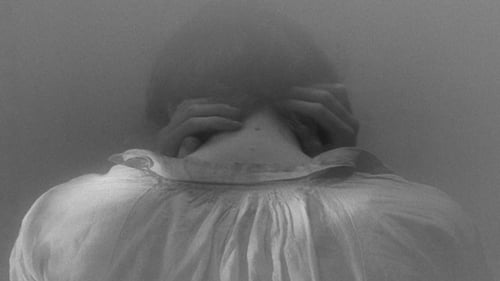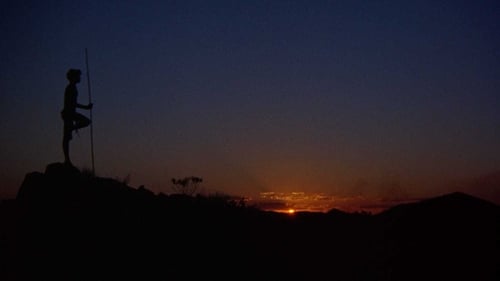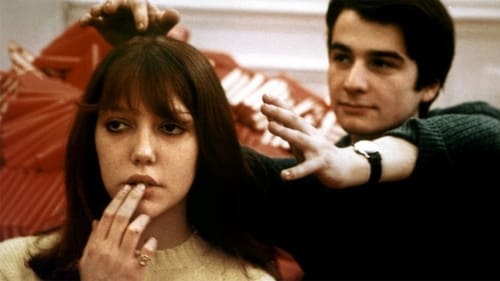Karlheinz Stockhausen
Рождение : 1928-08-22, Mödrath, Kerpen, Germany
Смерть : 2007-12-05
История
Karlheinz Stockhausen was a German composer, acknowledged by critics as one of the most important but also controversial composers of the 20th and early 21st centuries. He is most known for his groundbreaking work in electronic music, aleatory (controlled chance) in serial composition, and musical spatialization.

Self - Composer (archive footage)
The amazing story of electronic music: its epic journey from its origins in Europe, at the hands of the great artists of the post-war classical avant-garde, to the great post-industrial cities of the USA, where this genre of genres took over music stores, shady clubs and, eventually, the big stages.

Music
How can a DSLR camera move in the ruins of a 19th century mansion that is battered to be covered with glass and steel in the days to come, for that’s a more appropriate image as a shopping mall. How to get up and to do what in the ruins; the scenery of late ones to come? Here, this occurs: there are holes in some walls releasing specters to haunt which that makes impossible to reach. What is an Istanbul, where is Aleppo.

Himself
One morning, the late Karlheinz Stockhausen awoke from a dream that told him to take to the sky. Stockhausen envisioned four helicopters swirling in the clouds, with each of a quartet’s members tucked inside his own chopper, communicating through headsets, stringing away in sync to the rotor-blade motors. He immediately set forth to make that dream a reality. In 1995, Dutch film director Scheffer followed Stockhausen in the days leading up to the premiere performance of his Helicopter String Quartet in Amsterdam. The resulting film offers a rare glimpse of Stockhausen as he patiently dictates every agonizingly detailed measure to the Arditti Quartet.

Musical
One morning, the late Karlheinz Stockhausen awoke from a dream that told him to take to the sky. Stockhausen envisioned four helicopters swirling in the clouds, with each of a quartet’s members tucked inside his own chopper, communicating through headsets, stringing away in sync to the rotor-blade motors. He immediately set forth to make that dream a reality. In 1995, Dutch film director Scheffer followed Stockhausen in the days leading up to the premiere performance of his Helicopter String Quartet in Amsterdam. The resulting film offers a rare glimpse of Stockhausen as he patiently dictates every agonizingly detailed measure to the Arditti Quartet.

Producer
A woman sits alone on a chair at a table in a room on one of the top floors of an asylum. Bright spot lights dot the night, sometimes shining on her window. She sharpens pencils and writes on a page in a copy book. The pencil point often breaks under her fingers' force. She places broken points outside the window on the sill. A satanic figure is somewhere nearby, animated but of straw or clay, not flesh. She finishes her writing, tears the paper from the pad, folds it, places it in an envelope, and slips it through a slot. Is she writing to her husband? "Sweetheart, come." Written by

Male voice
A woman sits alone on a chair at a table in a room on one of the top floors of an asylum. Bright spot lights dot the night, sometimes shining on her window. She sharpens pencils and writes on a page in a copy book. The pencil point often breaks under her fingers' force. She places broken points outside the window on the sill. A satanic figure is somewhere nearby, animated but of straw or clay, not flesh. She finishes her writing, tears the paper from the pad, folds it, places it in an envelope, and slips it through a slot. Is she writing to her husband? "Sweetheart, come." Written by

Music
A woman sits alone on a chair at a table in a room on one of the top floors of an asylum. Bright spot lights dot the night, sometimes shining on her window. She sharpens pencils and writes on a page in a copy book. The pencil point often breaks under her fingers' force. She places broken points outside the window on the sill. A satanic figure is somewhere nearby, animated but of straw or clay, not flesh. She finishes her writing, tears the paper from the pad, folds it, places it in an envelope, and slips it through a slot. Is she writing to her husband? "Sweetheart, come." Written by

Self
Less a documentary than a primer on all electronic music. Featuring interviews with nearly every major player past and present, as well as a few energetic live clips, Modulations delves into one of electronica's forgotten facets: the human element. Lee travels the globe from the American Midwest to Europe to Japan to try to express the appeal of music often dismissed as soulless. Modulations shows that behind even the most foreign or alien electronic composition lies a real human being, and Lee lets many of these Frankenstein-like creators express and expound upon their personal philosophies and tech-heavy theories. Lee understands that a cultural movement as massive and diverse as dance music can't be contained.

For the past ten years Zappa in composing has turned away from Rock and Roll music - for which he first became famous - and has been working on new, contemporary, orchestral electronic music; in solitude and beyond any commercial conventions or commitments. It is the first time that Zappa has allowed a film crew to study him during compositional work, actually filming the first moments of a new compositional process. By contrast, in a staged interview Zappa gives comments on music. This film seeks to reveal the sensetivities of Zappa's personality and character also beyond narrative content.

Self
In his book "1984", George Orwell saw the television of the future as a control instrument in the hands of Big Brother. Right at the start of the much-anticipated Orwellian year, Paik and Co. were keen to demonstrate satellite TV's ability to serve positive ends-- Namely, the intercontinental exchange of culture, combining both highbrow and entertainment elements. A live broadcast shared between WNET TV in New York and the Centre Pompidou in Paris, linked up with broadcasters in Germany and South Korea, reached a worldwide audience of over 10 or even 25 million (including the later repeat transmissions).

As self

Additional Music
Сестра и брат, брошенные в безлюдном месте их отцом, который неожиданно сходит с ума и убивает себя. Имея при себе только транзистор, дети бродяжничают по пустыне с небольшой надеждой на спасение. В один прекрасный день молодой абориген, Галпилил, находит их и помогает выжить в пустыне.

Original Music Composer
Небольшая группа французских студентов изучают жизнь Мао, пытаясь найти свое место в мире и понять как меняется мир под воздействием маоизма.

Music
Filmed during rehearsals for the premiere of Stockhausen's monumental work Momente. The revealing rehearsal sequences are interspersed with Stockhausen speaking of his youth, work process and the genesis and meaning of Momente.

Himself
Filmed during rehearsals for the premiere of Stockhausen's monumental work Momente. The revealing rehearsal sequences are interspersed with Stockhausen speaking of his youth, work process and the genesis and meaning of Momente.

Studio recording of Mikrophonie I with the Stockhausen-Ensemble. Short introduction by Stockhausen in French and German.

Music
Studio recording of Mikrophonie I with the Stockhausen-Ensemble. Short introduction by Stockhausen in French and German.

Music
This fascinating film documents the U.S. premiere production of Originale, a Happening by German composer Karlheinz Stockhausen. Filmed at the "2nd Annual Avant Garde Festival of New York," which was produced by Norman Seaman and Charlotte Moorman, the stage production was directed by Allan Kaprow. Performers include Nam June Paik, Moorman, Jackson Mac Low and Allen Ginsberg, among many others.

This fascinating film documents the U.S. premiere production of Originale, a Happening by German composer Karlheinz Stockhausen. Filmed at the "2nd Annual Avant Garde Festival of New York," which was produced by Norman Seaman and Charlotte Moorman, the stage production was directed by Allan Kaprow. Performers include Nam June Paik, Moorman, Jackson Mac Low and Allen Ginsberg, among many others.

Karlheinz Stockhausen (22 August 1928 – 5 December 2007) was a German composer, widely acknowledged by critics as one of the most important but also controversial composers of the 20th and early 21st centuries. Another critic calls him "one of the great visionaries of 20th-century music". He is known for his ground-breaking work in electronic music, aleatory (controlled chance) in serial composition, and musical spatialization. February 13th 1972 at the Institute of Contemporary Arts, London. Excerpts from KONTRA-PUNKTE, GRUPPEN, GESANG DER JÜNGLINGE, ZEITMAßZE,
ZYKLUS, KREUZSPIEL, MANTRA, CARRÉ






